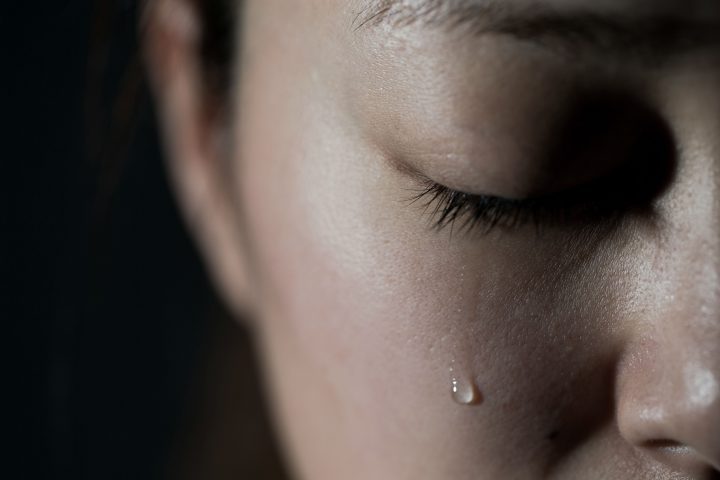Five Ontario women have allegedly been killed in acts of intimate partner or domestic violence in 2018. And while that number is shocking, experts say it’s not entirely unusual.

The deaths of five women — Holly Hamilton, Elaine Bellevue, Baljit Thandi, Avtar Kaur and Jan Singh — led to many advocates speaking out on Twitter this week, calling for attention to be raised on gender-based violence against women.
READ MORE: In Peel region, the same number of women were killed this month as all of 2017, police say
All of the deaths occurred this January, and were allegedly caused by men in the women’s lives.
Hamilton’s death resulted in her 30-year-old ex-boyfriend being charged with second-degree murder this week.
READ MORE: Married couple found dead inside Oakville home was murder-suicide, police say
Police said Friday that the most recent case, of Singh, was a murder-suicide. They explained that the 70-year-old woman was shot dead inside her home by her husband before he took his own life.
Keetha Mercer, who is a program manager of community initiatives at the Canadian Women’s Foundation, told Global News that such incidents are all too common.
WATCH: Ex-boyfriend charged with 2nd-degree murder in Holly Hamilton’s death

“When it comes to homicide cases, these tragic deaths are another reminder that this happens all the time in this country,” Mercer said.
“It’s definitely a lot in a short amount of time. But we have seen some other cases when a number of women have been killed in Ontario in a short amount of time.”
One such case was of Basil Borutski, a 60-year-old man convicted of killing three women, all of whom were former intimate partners. The women — Anastasia Kuzyk, Nathalie Warmerdam, and Carol Culleton — all died within hours of each other in September 2015.
Intimate partner violence by the stats
According to the foundation, every six days a Canadian woman dies after facing violence by an intimate partner in the country.
The organization’s research shows that 67 per cent of Canadians say they know a woman who has experienced either physical or sexual abuse.
READ MORE: Domestic violence victim speaks out as Manitoba protection orders hit 5 year high
Statistics Canada defines intimate partners as those who are legally married, separated or divorced, current or former common-law partners or dating, or any other intimate partner. It explains that such violence is generally under-reported, so statistics may underestimate its occurrence.
According to the government agency’s 2016 data, of the 93,247 victims who reported violence by an intimate parter that year, 79 per cent were women.
With population factored in, the provinces with the highest rates of intimate partner violence — based on the number of incidents for each 100,000 residents — were Manitoba and Saskatchewan. The lowest rates were seen in Ontario, Prince Edward Island and British Columbia. The highest rates in Canada overall were in Nunavut, the Northwest Territories and Yukon, according to StatsCan.
Across Canada, there were 72 cases of intimate partner violence in 2016 that resulted in homicide — 57 women and 15 men were killed.
Data shows that the number of homicides from such violence has remained relatively the same since for several years. Women under 24 years of age have most commonly been the victims.
Barriers in seeking help
Some individuals facing violence may have more difficultly seeking help, Toronto-based advocate Chenthoori Malankov explained.
Malankov, who works with the Ontario Council of Agencies Serving Immigrants, explained that those in marginalized communities face additional barriers in seeking help.
WATCH: Indigenous women 12 times more likely to be murdered than other women

“Immigrants and refugees specifically are more vulnerable because of the fact that they simply may not understand the law, or their language barrier,” Malankov told Global News.
Other newcomers may be undocumented, or fear losing immigration status gained through a partner.
She noted that each case of violence is unique, and it’s important to address each situation with sensitivity.
READ MORE: Rural, small-town women nearly twice as likely to be assaulted by their partners, StatCan finds
Mercer added that in some parts of the country, such as rural areas, women may not have access to enough services or face transportation barriers in reaching organizations typically located in cities.
Many women may also have children, and fear that seeking help could put them in danger, Mercer explained.
WATCH: After 2 years of domestic violence, woman sits down with her abuser and asks ‘Why?’

How to get help
While there are a myriad of organizations for those seeking help, there are a few that Mercer and Malankov recommend in particular.
For those in the Greater Toronto Area, Malankov says the Assaulted Women’s Helpline is a great resource and offers assistance in about 200 languages. It can be reached at 1-866-863-0511 or TTY 1-866-863-7868.
READ MORE: B.C. government promises $5 million to help women and children affected by violence
Outside of that area, Mercer says those facing violence can find several other regional helplines online.
Mercer added that those who fear violence should have a safety plan in place.
“That includes reaching out to someone that you trust, having copies of your documents somewhere else, and having a plan for where to go in case violence escalates,” she explains.
WATCH: Report on university campus sexual violence calls for culture change

Ontario Provincial Police Sgt. Carolle Dionne also told Global News that those facing immediate threats of violence should call 911, or their local police division.
The officer added that others, such as neighbours, friends or extended family, who fear someone they know may be in danger should also reach out to police.






Comments